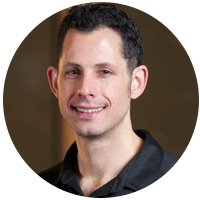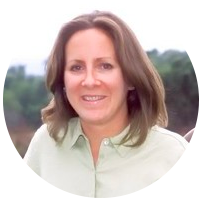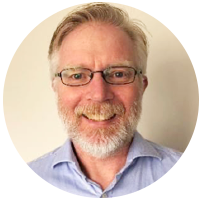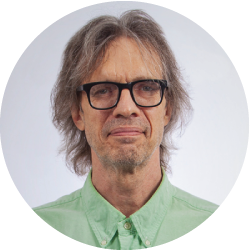Impacts of Climate Change and Forest Management on the Western Wildfires
Wildfires in California have burned more than 4 million acres—more than double the state’s previous record for one year, and 2020 isn’t over. While 5 of this year’s wildfires have cracked the Top 20 in terms of destruction (combined they have destroyed 8,900+ structures), they already account for 5 of the Top 6 largest wildfires in California’s recorded history. The August Wildfire occupying the #1 spot has been designated a “gigafire”—the first ever to burn more than 1 million acres. Other Western U.S. states have also experienced some of their largest, if not their largest, wildfires in recorded history. While some believe that poor forest management has resulted in more fuel to burn, numerous research studies have linked wildfires in the United States to climate change, as hotter and longer dry spells make vegetation more easily flammable.

John Abatzoglou, Ph.D.
Associate Professor
University of California
jabatzoglou@ucmerced.edu
Dr. John Abatzoglou is an Associate Professor in Management of Complex Systems at the University of California, Merced. John received his bachelor's degree in Atmospheric Science from UC Davis, doctorate in Earth Systems Science from UC Irvine. John's academic interests are primarily focused around climate science and impacts in the American West. His Climatology Lab works on a diverse set of research questions spanning climate science and meteorology as well as their impacts on systems including water resources, wildfire, and agriculture. The research group also develops web-based climate services to help scientists and practitioners improve climate readiness.

Janice Coen, Ph.D.
Project Scientist
Mesoscale and Microscale Meteorology Laboratory at the National Center for Atmospheric Research
janicec@ucar.edu
Dr. Janice Coen holds positions of Project Scientist in the Mesoscale and Microscale Meteorology Laboratory at the National Center for Atmospheric Research and Senior Research Scientist at the University of San Francisco. She received a B.S. in Engineering Physics from Grove City College and an M.S. and Ph.D. from the Department of Geophysical Sciences at the University of Chicago. She studies fire behavior and its interaction with weather using coupled weather-fire CFD models and flow analysis of high-speed IR fire imagery. Her recent work investigated the mechanisms leading to extreme wildfire events, fine-scale wind extrema that lead to ignitions by the electric grid, and integration of coupled models with satellite active fire detection data to forecast the growth of landscape-scale wildfires.

Phil Cunningham, Ph.D.
Senior Scientist
AIR Worldwide
pcunningham@air-worldwide.com
Dr. Phil Cunningham is a Senior Scientist II in the Research Department at AIR and a member of the wildfire modeling team. Prior to joining AIR, Phil worked for Airlabs in Copenhagen, Denmark, as Head of Airflow Engineering and Atmospheric Modeling. He was an Assistant and Associate Professor of Meteorology at Florida State University, a research scientist at the Los Alamos National Laboratory, a consultant fluid dynamics specialist in the UK and a Senior Lecturer at Coventry University. Phil earned a B.Sc. in Mathematics and Meteorology from the University of Reading and an M.S. and Ph.D. in Atmospheric Science from the State University of New York at Albany. His areas of expertise include wildland fire modeling, atmospheric dynamics and computational fluid dynamics.

Jeff Amthor, Ph.D.
Assistant Vice President
AIR Worldwide
jamthor@air-worldwide.com
Dr. Jeff Amthor is an Assistant Vice President in AIR’s Research Department. He manages the development of AIR’s wildfire risk models and agricultural risk models used by reinsurers, reinsurance brokers, and insurers in the U.S. and globally. Jeff has extensive research and modeling experience at major universities, USDA’s Agricultural Research Service, the U.S. Department of Energy, and within the U.S. National Laboratory system. He earned M.S. degrees from Texas A&M and Yale, a Ph.D. in Plant Ecophysiology from Yale, and was Lecturer in Forest Ecophysiology at Yale University and Professor of Agronomy and Primary Production at The University of Sydney.
